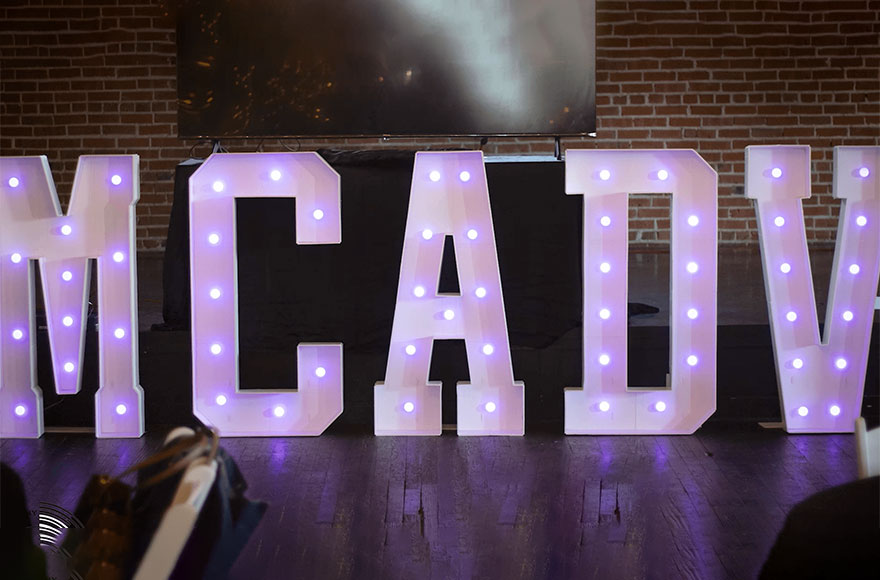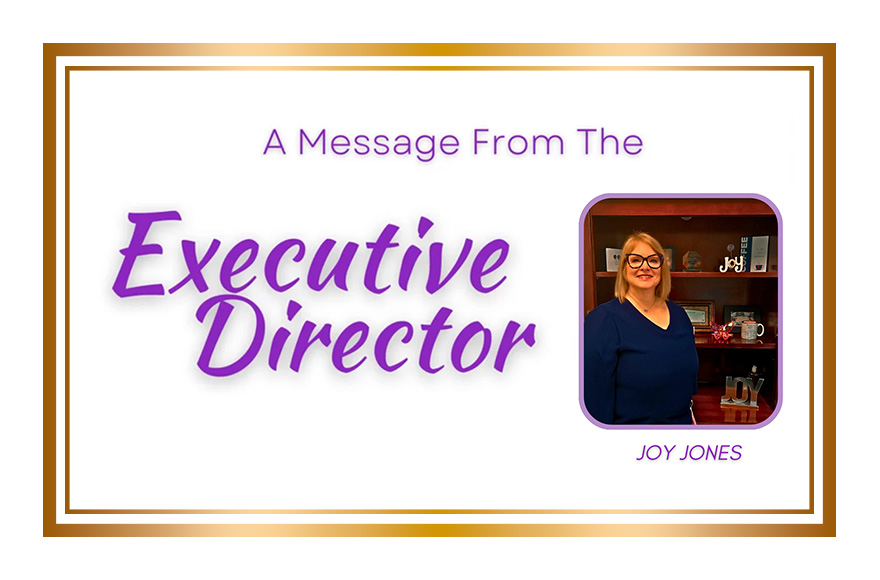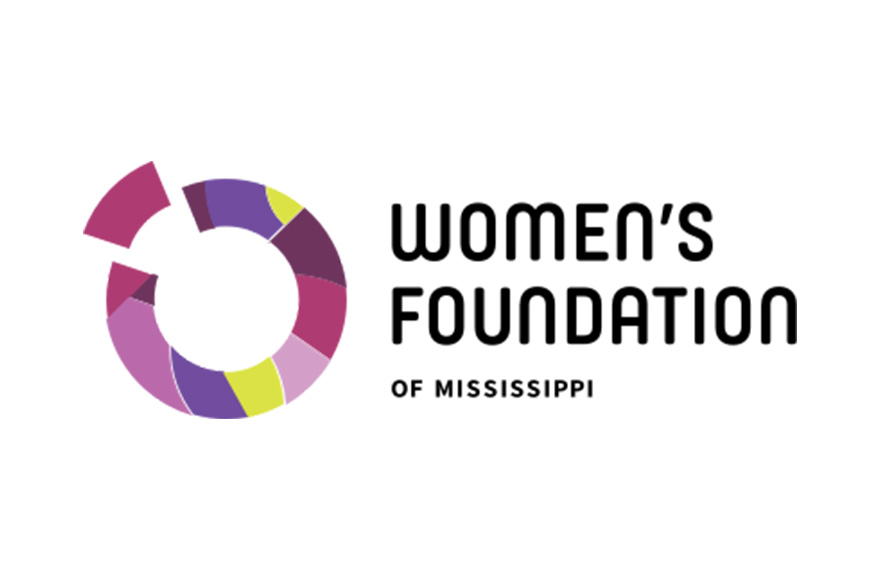
Article Submitted by Latisha Latiker, Director of Grants Programming, WFM
The Women’s Foundation of Mississippi’s (WFM) mission is economic security for women. We invest in organizations and activities across the state because we know that when women are economically safe and secure – so are their families, and so are their communities. We believe that when women thrive, Mississippi thrives. WFM is a public foundation and the only statewide grant maker focused on women and girls. We make grants, conduct research, provide education and awareness and advocate for change.
WFM operates from a social change model that all women should have the opportunity to obtain a degree or credential, good jobs with benefits, and plan their pregnancies. Women and families who have experienced domestic violence can restart their lives when they have access to programs and services that lead to a path of opportunity. Many of the programs and initiatives that the Foundation funds through its grant focus areas can be a benefit to women starting over. WFM focuses on Access to Opportunity (2-year degree/credential/skills training), two-generation approach, and reproductive wellness/health women to advance its mission of economic security. Under the Access to Opportunity grant focus area, the Foundation strategically partners with most of the state’s community colleges to fund programs that address the needs of women by providing funds for wrap around serves such as assistance with childcare, food, rental assistance and other barriers that prevent graduation. Currently the Women’s Foundation of Mississippi is partnering with the Bower Foundation and selective community colleges and four-year universities to specifically increase the healthcare workforce in Mississippi. Through the Two-Generation grant focus area, the Foundation works with community-based organizations and community colleges to provide programs that focus on economically vulnerable families and directly address the needs of parents and their children simultaneously in a holistic way. Finally, WFM’s Reproductive Wellness/Health Women focus area funds community-based reproductive health programs, access to adolescent health services/teen health clinics, and access to contraception and research.
Reaching Victims Where They Are
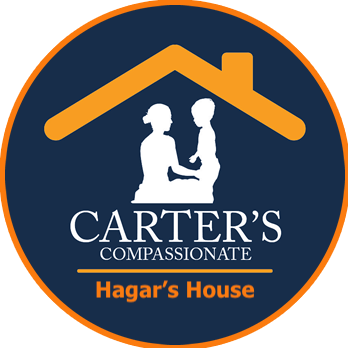
Servicing Victims with Disabilities
Hagar’s House
Many victims of domestic violence flee the familiarity of their homes in search of safety. Some leave with no money and no idea of what to do next, leading to a feeling of vulnerability. This can be magnified when the victim has a disability. Domestic violence shelters are charged with providing safety and services to help victims begin their journey to becoming survivors. This must be done with compassion and understanding of the needs of each individual. This is especially true when servicing victims with disabilities. Domestic violence shelters must have the capacity to assist any client, regardless of their physical or mental limitations, to truly be able to effectively service their community.
Hagar’s House, located in central Mississippi, is a safe haven for women and children who are homeless due to domestic violence or human trafficking. They provide emergency shelter, temporary housing, and supportive services, to help women become empowered and self-sufficient. During a 30-day program, victims are assisted through a crisis phase, given job training, and are provided access to professional counseling for themselves and their children. Staff members ensure that residents are seen by doctors when necessary and get any needed evaluations. Clients are able to access and continue taking prescribed medication through the Hagar’s House medication management process. Specific staff members are trained to be knowledgeable of and distribute all medication.
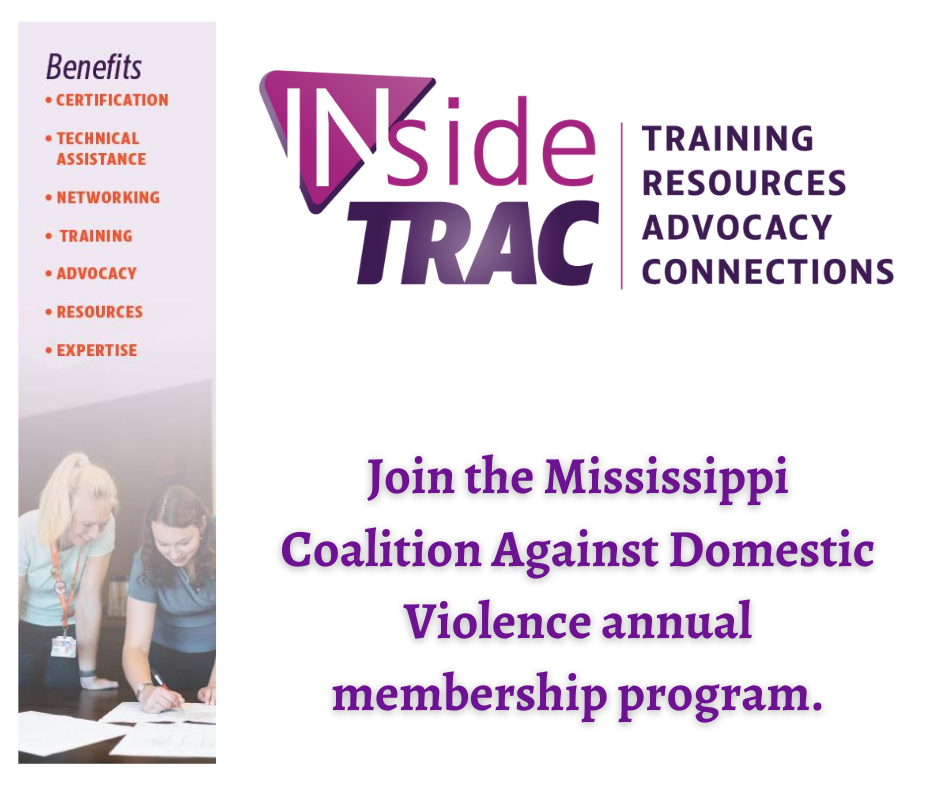
Advocates Coffee Break: Applying the Learning
The Power of Pronouns
One of the cornerstones of Mississippi Coalition Against Domestic Violence is providing training about domestic violence. It is our goal that victim advocates participating in Advocate Coffee Breaks will be proactive and better prepared to provide culturally specific services when survivors from diverse backgrounds seek their services. The greater question is always, “What happens after the Advocate Coffee Break?” Attending the session is just the beginning. The success is the application of the learning in their daily work and interactions with the victims, survivors, and the community.
A message that has been addressed by several Advocate Coffee Break presenters regarding LGBTQIA+ communities is the use of pronouns. Pronouns are the way that we refer to people in place of their name. When you use someone’s correct pronouns, it serves to create an inclusive environment where you demonstrate that you care for and respect them. Some best practices we can apply immediately are:
Don’t assume someone’s pronouns just by looking at them.
Introduce yourself and provide your pronouns. This is a small gesture that establishes that you are respective of honoring one’s identity. By opening the conversation with your pronouns, you are signaling to the other person that you are familiar with the concept of pronouns and may be safe to talk to, particularly if you’re speaking to a member of the LGBTQ+ community. Additionally, you are increasing the normalcy of sharing of pronouns in public spaces and interactions.
If you make a mistake and use the wrong pronoun for someone, apologize, use the correct pronoun, and proceed. Avoid dragging out the apology and making the other person comfort you for your mistake.
Include pronouns in your email signature, bios, and name tents. This normalizes the idea of sharing one’s personal pronouns, making it easier for trans and gender non-conforming people to do it without feeling like the odd one out.
Avoid using the word “preferred” in front of pronouns because it insinuates that the pronouns are optional. Instead, say “my pronouns are” or “their pronouns are”.

Gun Violence and Domestic Violence: The Boyfriend Loophole
Guns and domestic violence are a lethal combination. Intimate partner violence and gun violence have been uniquely linked, impacting millions of communities across the country. Studies have shown that abusers with firearms are five times more likely to kill their victims. They often use guns to inflict emotional abuse and exert coercive control over their victims. Every month, an average of 57 women are shot and killed by an intimate partner.
One of the most significant threats to victims of domestic violence is a perpetrator’s access to firearms. Firearms are the primary weapon of choice in most domestic violence homicides. When abusers have access to firearms, a survivor’s life is in danger. Limiting abusers and stalkers’ access to firearms is critical to reduce the number of women murdered in this country every year. Unfortunately, state and federal laws make it easy for domestic violence offenders to obtain guns.
Gun safety laws can save lives by restricting access to firearms by people with a demonstrated history of domestic violence and abuse. The Lautenberg Amendment, adopted in 1996, prohibits people convicted of certain domestic violence crimes from buying or owning guns. However, federal law does not require a background check to be performed before every sale of a gun, including sales by unlicensed, private sellers. This allows people who would fail a firearm background check due to their domestic violence record to find private sellers for access to guns. Additionally, current federal law does not prohibit people convicted of misdemeanor stalking crimes from having guns. Many states have adopted laws that fill gaps in federal law by more thoroughly restricting access to firearms and ammunition to people who commit domestic abuse. But there are still critical matters that need to be addressed such as the Boyfriend Loophole.
MCADV IN THE COMMUNITY
National Crime Victims’ Rights Week
Outstanding Service To Crime Victims Award Ceremony
MCADV Executive Director Wendy Mahoney presented the Outstanding Service to Crime Victims Award to Sheriff William Sollie, Lauderdale County Sheriff’s Office, during the annual ceremony hosted by the Mississippi’s Attorney General’s Office.
Pictured l to r: MCADV Executive Director Wendy Mahoney, Sheriff William Sollie, Care Lodge Executive Director Abby Miller
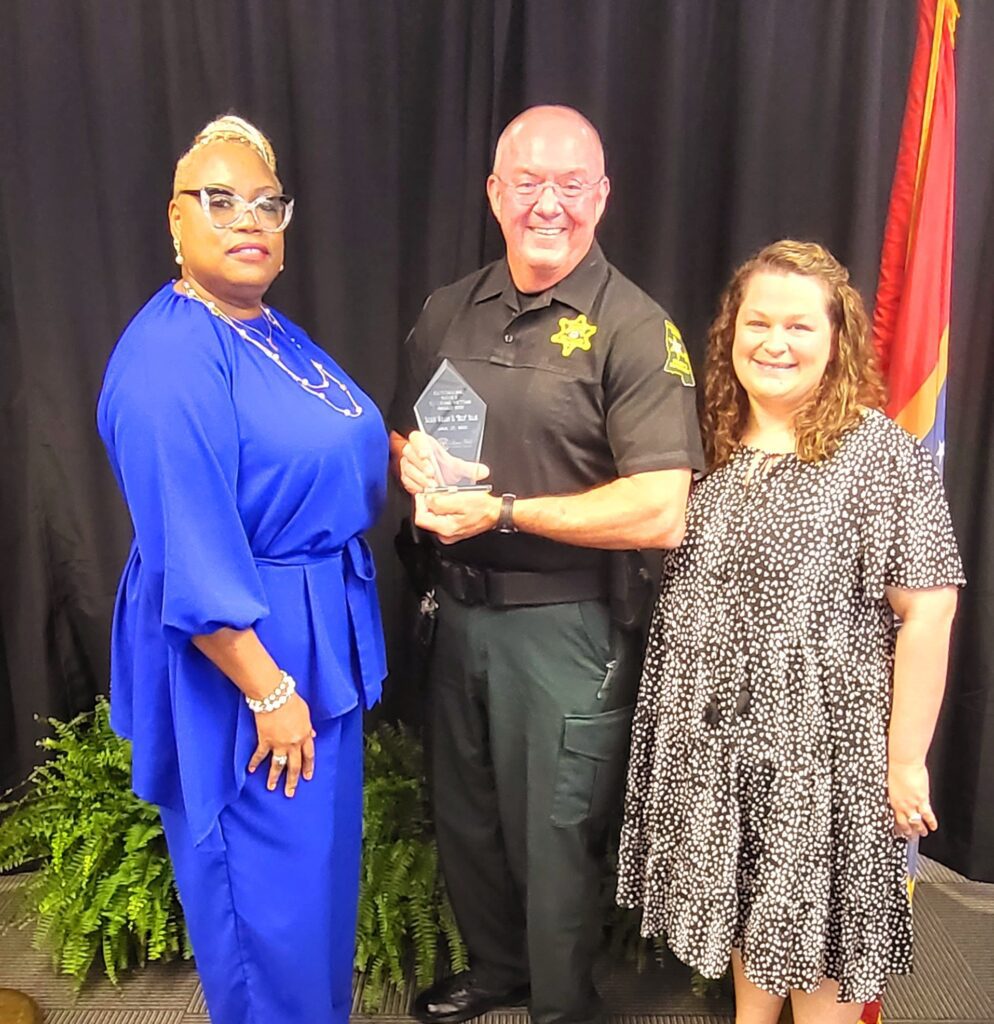
Central Mississippi Correctional Facility Employee Health Fair
MCADV staff presented information and resources to CMCF employees during their annual employee health fair, which also coincided with Correctional Peace Officer Week. We spoke with staff members that provided knowledge on requested services and unmet needs in the facility.
Pictured l to r: AJ Burks, Tara Steverson
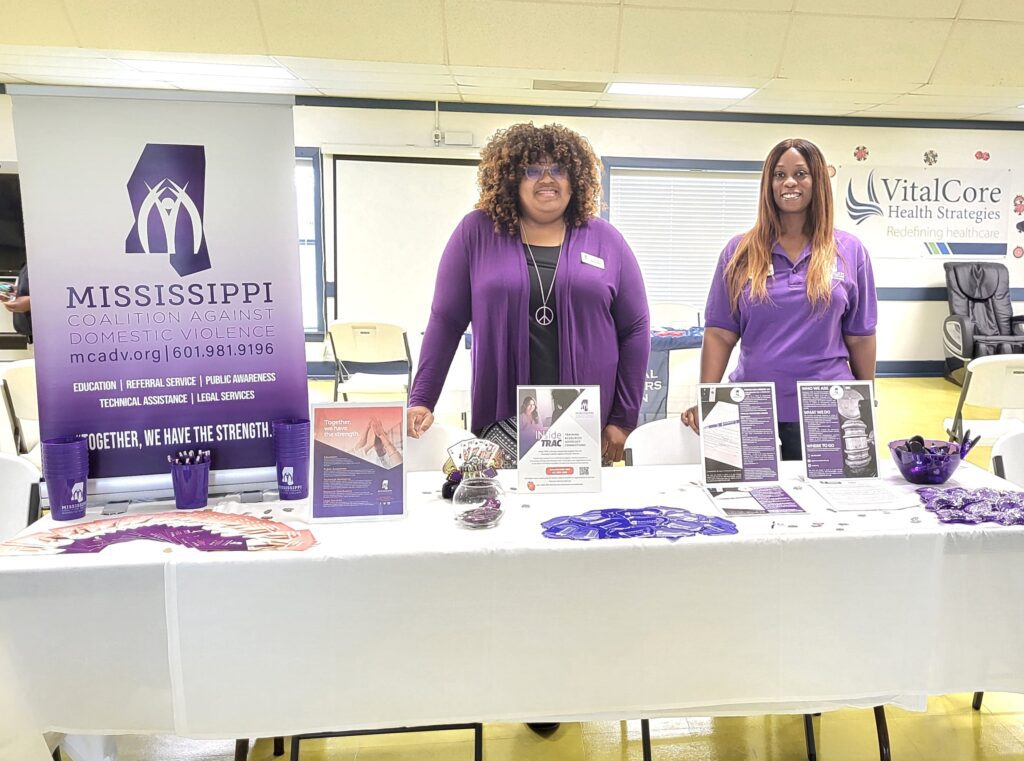
Magnolia Alliance Center Against Domestic Violence
Spring Domestic Violence Fundraiser Conference
MCADV Executive Director Wendy Mahoney spoke on the prevalence of domestic violence and provided strategies for community engagement during Magnolia Alliance Center Against Domestic Violence’s fundraiser conference. The conference was held in Batesville, MS and Panola County Sheriff Shane Phelps kicked off the conference emphasizing issues pertaining to domestic violence in the community. Domestic violence survivors from the community spoke on their experience and victory of overcoming many forms of abuse.
The Center for Violence Prevention 5K Run at Trustmark Park
MCADV staff participated in the 5K run hosted by The Center for Violence Prevention. Proceeds from the event will support the services provided by the center, helping them to continue to advocate that every person has the right to live a life free from violence.
Pictured l to r: Vera Johnson, Paula Granger, Tara Steverson
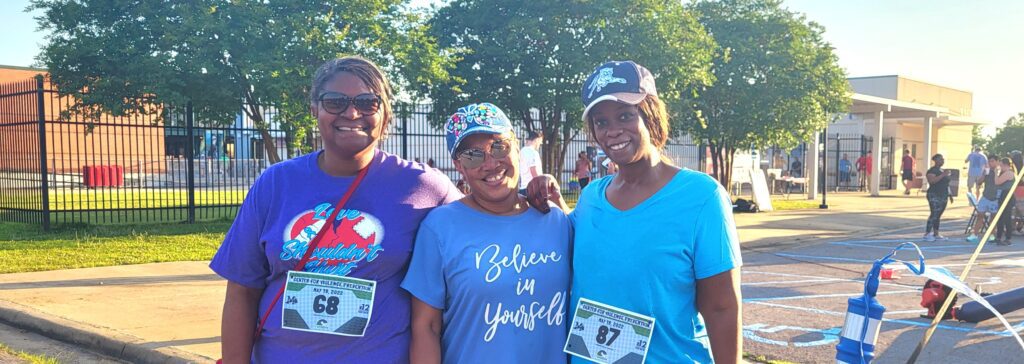
En Plein Air Fundraiser hosted by Domestic Abuse Family Shelte
MCADV Executive Director Wendy Mahoney was a guest speaker at the Third Annual En Plein Air fundraiser for the Domestic Abuse Family Shelter (DAFS), held in downtown Laurel. The outdoor painting event drew 100 adult and child artists from seven states. En Plein Air earns a great deal of attention for DAFS, allowing the agency to reach hundreds of people in effort to share its mission to fight domestic abuse.
Left: MCADV Executive Director Wendy Mahoney Right: DAFS Executive Director Rebecca Stewart
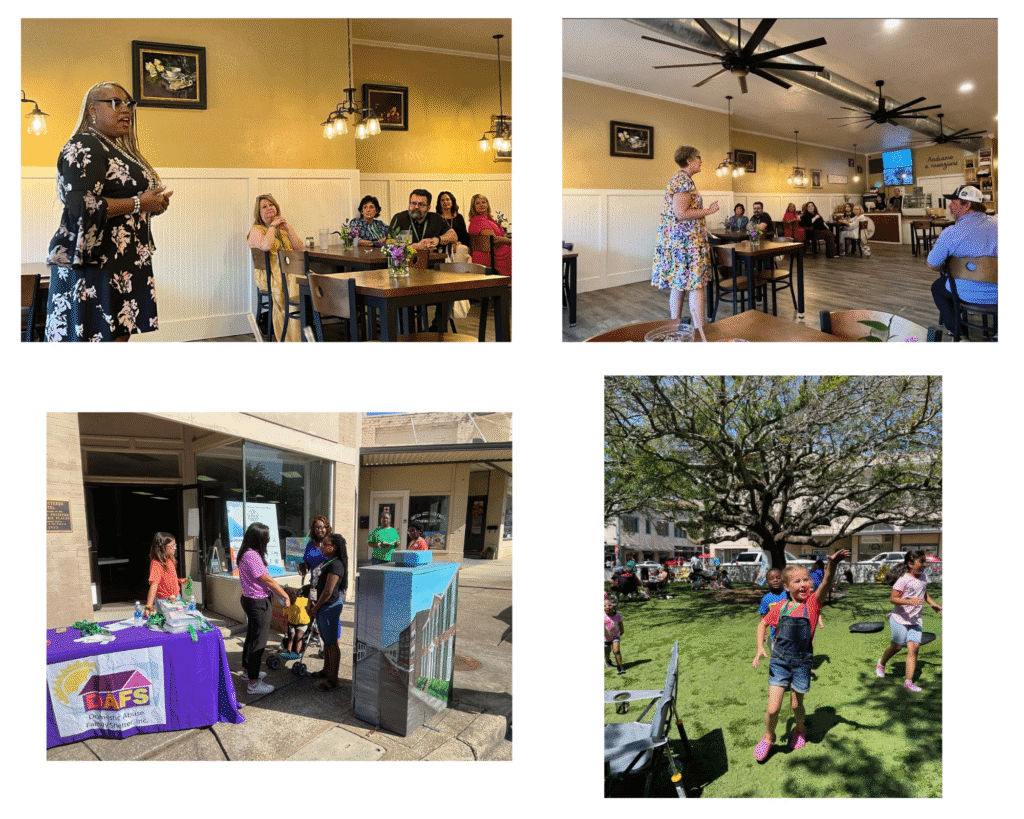
Event participants enjoying the activities

